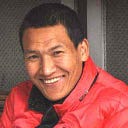Expanding Digital Spaces for Deliberations
The debate regarding singer Durgesh Thapa’s new song, “Bicha Bichama -4 (Khyassa Putali)”, released on Youtube on 23 July 2021 on the occasion of Teej show that a group of people are not happy with the use of the words, “Khyassa Putali”. Just a day earlier, the National Folk and Duet Song Academy Nepal had requested the singer to change these two “objectionable” words and after the singer did not follow their request, it has been reported that this organization is planning to boycott the singer and the song. This situation has created the debate regarding the shrinking of digital spaces in Nepal. Let us see the other two cases in brief.
Shrinking Digital Spaces
This first case is related to “national security”. A video was made public on the Youtube channel with the title “Deshdrohi” on August 18, 2020. The lyrics of the video criticizes Brahmins and Chhetris and it contains visuals of burning the national flag .On social media, many audiences called the video “racist” and “antinationalist” and demanded that the video and its team be booked according to the law. By August 18, 2020 its camera person was arrested and the police started to look for other members including the singer, Gyalzen Dorje Tamang, who surrendered before the police on 19 August, 2020. The singer remained in the jail for six months under the charges of offence against the state according to the article 49 of the National Penal (Code) Act, 2017 and was released on bail after paying NRs. 1,00,000 on February 15, 2021. In an interview he mentioned that the national flag was adapted from India and the flag did not reflect the ethos of secularism.
This second case is about “obscenity”. In March 2019, the police arrested the owner of Youtube channel, Masti Talk Time, its host, and a model on the charge of cybercrime under Electronic Transaction Act, 2008. According to a report, the owner conducted interviews with singers and models asking them personal questions, and some videos were deleted after people complained about the content on the channel. Interviews with the model related to her sexual experiences were very popular on the channel. These three people were arrested after receiving complaints from general people.
No doubt, these two cases do not allow us to generalize the situation of rights in the digital space. There are other important cases related to free speech such as Pranesh Guatam on film review, Bhim Upadhyaya on criticism of then PM K.P. Oli, Dipak Pathak on the criticism of leader Pushpa Kamal Dahal, and Mohammad Abdul Rahman on writing comments on security. Yet two cases discussed above show that the digital spaces are shrinking in Nepal using vague ideas like “national security” and “obscenity”.
Possibility of expanding
The one way to expand the digital space in Nepal is to have laws that encourage more debate and discussion. For this, the draconian laws can be amended. Journalists and activists have criticized the vague provisions of the Electronic Transaction Act, 2008 and the National Penal (Code) Act, 2017 and requested the government to amend these laws. The government too has already aimed to scrap the Electronic Transaction Act(ETA) by introducing the Information Technology Bill. However this bill also contains more draconian provisions than what ETA has. Many activists and scholars have already requested the government to amend both laws.
Another way is to interpret the restrictions broadly by courts. These restrictions seem to emanate from the Constitution of Nepal, 2015. Though the existing constitution guarantees freedom of expression in article 17 (2) a, there are few important “reasonable restrictions”. The reasonable restrictions can be divided into eight broader categories: national integrity, harmonious relationship among people (religious groups, castes), caste-based discrimination, disrespect of labor, defamation, contempt of court, incitement to an offence, and acts against public decency and morality. These limitations set the boundaries of the freedom of information of citizens as often the laws that made provisions for rights and responsibilities in contrary to the constitution can be challenged in courts.
Activists and scholars have argued that these terms are vague. In a review of the provisions of the constitution, researchers have raised that these restrictions don’t follow the principles of international human rights, especially those discussed in the International Covenant on Civil and Political Rights (ICCPR), of which Nepal is a signatory. Article 19 of this covenant allows the violation of freedom of expression in some cases such as the rights or reputations of others; and the protection of national security or public order. However, the covenant clearly mentions that these rights can be violated only according to law and only when it is absolutely necessary. Yet it is difficult to maintain a balance between rights and restrictions. As argued by the constitutional law expert Bipin Adhikari, reasonable restrictions mentioned in the constitution do not guide the state in its interpretations as even courts can have multiple interpretations. One way is to follow the principle of proportionality when the courts interpret these reasonable restrictions. The principle of proportionality will obligate a public authority to show that the restriction is strictly necessary.
These should be more public deliberations on the fundamental rights guaranteed by the constitution, reasonable restrictions mentioned in the constitution and other provisions of national policy documents. Such deliberation could help expand the digital space in Nepal.
Note: This piece was written as my regular column “Media Matters” for 7 August in The Rising Nepal. On 6 August I was informed that this article was withheld as it “questions and opposes some provisions of the constitution”. So I have decided to publish here with extra links and a photo.
